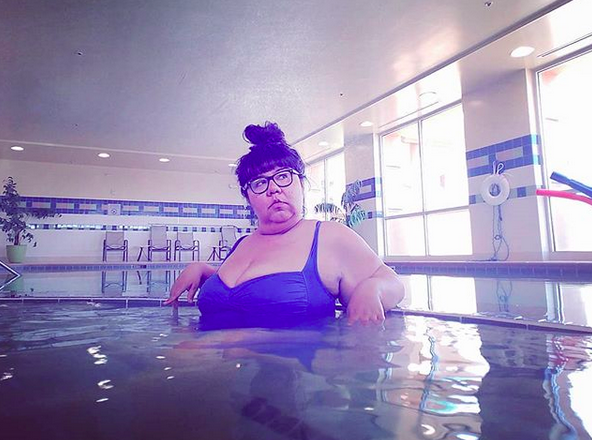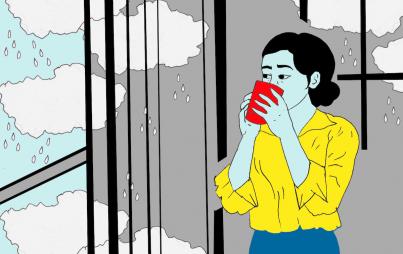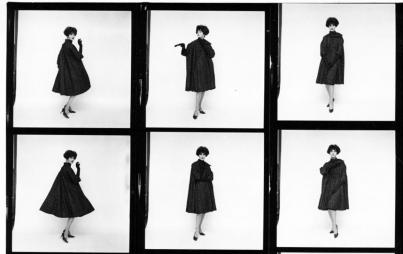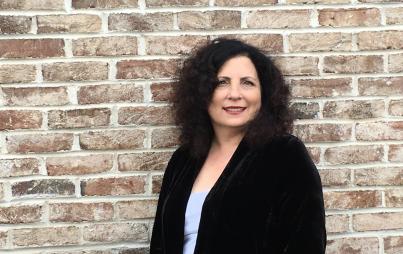
image credit: Virgie Tovar via Instagram
Sometimes I feel like I can draw a straight line between difficult parts of my life and the long-term effects of being a fat person surviving size-based stigma. I’ve written about the three levels of fatphobia before, but more and more I see the scars that institutional fatphobia leaves. Beyond the interpersonal aggression that I live in fear of all the time, there are the slowly erosive and demoralizing effects of knowing every day that there’s not room for me in my own culture. It shows up in all kinds of ways — from the way that there’s almost never a fat person lovingly portrayed in popular media to the way that I feel gaslit about my body and the worthiness of my existence (gotta name check sexism and racism here too, though).
Sometimes I feel like I can draw a straight line between difficult parts of my life and the long-term effects of growing up in an emotionally unstable home, parented by deeply traumatized people. It feels written into the way that I, for so long, felt numb, the way I saw friendships with others as a liability, and the way that I intentionally sabotaged romance after romance after romance.
The truth, though, is when we’re tracing emotional cause and effect, there are no straight lines. Everything is connected. We want to bring our logical mind into healing, but healing is the domain of the body, the heart.
I can’t neatly scrape fatphobia out of my feelings toward intimacy, and I can’t compartmentalize family trauma as only having impacted some parts of my life and not others.
My inability to allow people to get close to me for so long has to do with the fact that my mother was not emotionally available, and so my understanding of love was deeply tied to the belief that it would always end in the highest form of heart-breaking rejection. However, I have to admit that it also has to do with being told I was undesirable and unlovable every day from age five to age 18 by boys at school because I was fat. It had to do with the fact that none of my friends stood up for me. It had to do with men trying to date me in secret and hiding their desire out of fear of social punishment. It had to do with the fact that I never saw a fat woman get anything good, ever.
You Might Also Like: Take The Cake: Vulnerability Is Haaaaaard
Lots of us struggle with multiple kinds of trauma, and we get overwhelmed trying to make sense of which thing we need to heal from, how, and in what order. I’ve found that line-itemizing trauma in an attempt to neatly dominate the process is not super effective. Sometimes it seems like we need to heal our romantic scarcity anxiety or our fear of food, but what needs to happen first is something different entirely.
In my experience, healing has come when I’ve taken the time to recognize I’ve been really, really hurt by many things. It’s come when I’ve made time to grieve and cry. It takes a lot of courage to treat ourselves like precious and sensitive humans, to give ourselves love in a way that perhaps no one else ever has.
Recently on a call with an amazing astrologer, I was reminded that for new feelings and ideas to come into our lives, we’ve got to make room for them. We must ask ourselves what we’re ready to let go of.
For me, that’s looked like not dieting, ending relationships that didn’t nourish me, not having contact with the part of my family that kept me in toxic patterns, sitting with extremely difficult feelings rather than doing everything in my power to avoid them, cleaning up my closet, journaling, meditating, listening to my body, trusting my intuition, talking to plants, and setting aside time to listen to Beyonce’s "All Night Long" on repeat while crying.
Trying to heal from something as painful as fatphobia (which attacks us to the core!) is a daunting task.
Unlike my childhood, fatphobia is not safely in my rearview mirror. Further, emotional wounds heal more slowly than physical ones, and the changes are often subtle. Healing is a slow, annoyingly lengthy process, but it’s also a generative, nourishing and beautiful process filled with surprises.
If you’re just starting a healing process from multiple sources of trauma, I suggest not attempting to rationalize and control your healing experience. Start with the simple recognition that you’re hurt and treat yourself the way you’d treat a kid who just had their heart broken for the first time.








